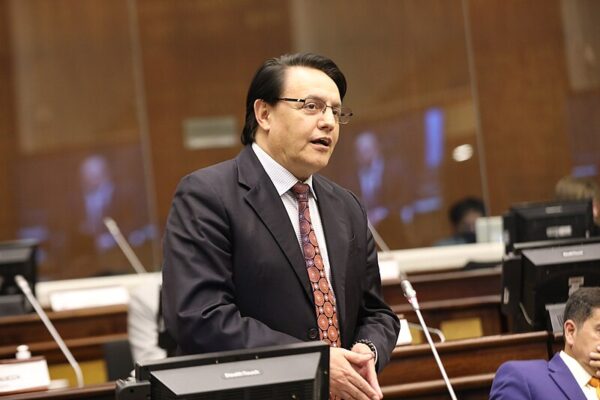Villavicencio assassination: Uncertainty shadows Ecuador’s upcoming polls
In a sensational twist ahead of Ecuador’s impending presidential elections, candidate Fernando Villavicencio, a relentless challenger of corruption and crime, was brutally assassinated during a campaign event in northern Quito. This sudden murder has left the nation reeling, intensifying an already charged atmosphere, and casting a pall of fear and uncertainty on the forthcoming polls.
Campaign Trail turns Blood Trail: Voters in Fear
With the elections slated for August 20, Villavicencio’s murder has rattled the citizens. Reports suggest that many are now reevaluating their decision to step out and vote, apprehensive about further violence. Quito-based manicurist Margarita Alvarado, echoing the sentiments of several others, voiced her fears of a violent event at the polling station, contemplating whether the mandatory vote was worth the risk. This heightened anxiety comes in the backdrop of an already volatile political environment, with close to 40% of the voters undecided and a significant portion, 25% according to pollsters, planning to submit a protest or blank ballots.

Unsettled Ecuador Election Takes a Dark Turn: Presidential Hopeful Fernando Villavicencio Assassinated! Photo courtesy of Asamblea Nacional del Ecuador from QUito, Ecuador/Wikimedia Commons.
Political Shockwaves and a Tense Electoral Landscape
Villavicencio, having garnered approximately 8% voter support, was a formidable figure. His untimely death has thrown the electoral outcome into further unpredictability, with analysts highlighting the complexities this event brings to an already atypical political crisis. With Villavicencio’s firm opposition to the leading leftist candidate, Luisa Gonzalez, and his substantial union ties, analysts are finding it hard to predict where his voter base might swing. Some speculate that Jan Topic, known for his staunch stance against crime, might stand to benefit. However, Topic’s limited visibility poses challenges.
Political Mud-slinging in the Midst of Tragedy
The tragic turn of events has not deterred the political arena from indulging in blame games. With Villavicencio’s party condemning the politicization of his demise, accusations flew thick and fast, involving former President Rafael Correa and current leader Guillermo Lasso. The consequent repercussions of this violent act, as Paulina Recalde from polling firm Perfiles de Opinion suggests, might cast shadows of doubt on the electoral process, exacerbating the prevailing political tumult.
The electoral journey is far from over, as a potential second round awaits on October 15. The coming days will test Ecuador’s political resilience, as the country strives to put this harrowing episode behind and move forward with the democratic process.
Discover more from Business-News-Today.com
Subscribe to get the latest posts sent to your email.

